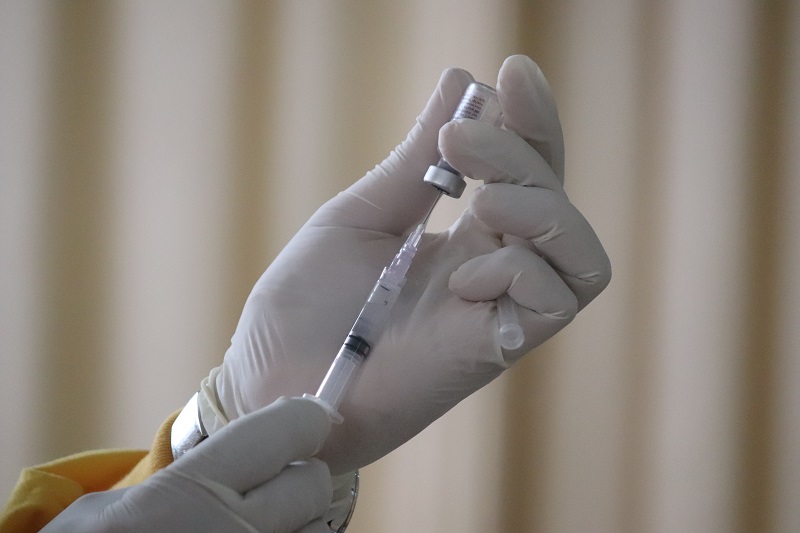Reported research from May 18, 2022
Clinical trials currently underway may soon tell us whether the mRNA vaccines against COVID-19 could pave the way for a vaccine for HIV, the virus that causes AIDS.
The messenger RNA technology behind successful new vaccines against COVID-19 is accelerating the development of a vaccine against HIV, according to reports.
Moderna is running two HIV vaccine clinical trials leveraging the mRNA technology. The first trial launched in January, a partnership between Moderna, the International AIDS Vaccine Initiative, NIH, and the Bill & Melinda Gates Foundation. The second trial launched in March.
“Developing a vaccine regimen that induces sustained protective levels of HIV neutralizing antibodies in humans has been difficult to achieve. At Moderna, we believe that mRNA offers an opportunity to take a fresh approach to this challenge,” said Stephen Hoge, M.D., President of Moderna. “This study is another step in our fight against HIV, as well as other latent viruses such as our recently launched studies in CMV and EBV.”
“The pandemic probably accelerated the HIV vaccine field 5 or 10 years within the span of a year,” Dr. Jesse Clark, an infectious diseases specialist at the University of California, Los Angeles, told National Public Radio (NPR) last week.
New clinical trial developments: May 18, 2023
The trial, IAVI G003, will test the hypothesis that Moderna’s mRNA platform can induce similar immune responses in African populations as seen in a previous Phase I trial, IAVI G001. Both trials build on progress in HIV vaccine research.
HIV Vaccine Awareness Day recognizes decades-long efforts
HIV Vaccine Awareness Day is observed annually on May 18, recognizing the researchers involved in the long struggle to develop a safe and effective HIV vaccine. An initiative of the National Institute of Allergy and Infectious Diseases (NIAID), HIV Vaccine Awareness day also brings attention to the importance of the effort. In 1997, U.S. President Bill Clinton declared that “only a truly effective, preventive HIV vaccine can limit and eventually eliminate the threat of AIDS.”
Thanks to pharmaceutical advances, HIV/AIDS is no longer a death sentence, and it may be a treatable illness for many people. However, “the development of a safe and effective HIV vaccine remains key to realizing a durable end to the HIV pandemic,” NIAID said.
According to UNAIDS, more than 38 million individuals worldwide are living with HIV/AIDS, including 1.2 million people in the United States. Since the beginning of the epidemic, about 80 million people have been infected with HIV, says UNAIDS, and almost 700,000 die annually from AIDS-related illnesses, according to NPR.
The battle continues
Since the HIV virus was identified as the cause of AIDS in 1984, scientists supported by NIAID have been working toward a vaccine for HIV. They approach the research from two complementary perspectives: an empirical approach that rapidly moves vaccine candidates into human testing, and a theoretical approach that designs vaccine candidates based on an understanding of the immune response to HIV infection.
The National Bureau of Economic Research (NBER) estimates that the U.S. government, charitable institutions, and pharmaceutical corporations have spent more than $15 billion on the attempt since 2000.
Johnson & Johnson said in August 2021 that an experimental HIV vaccine, developed over a 15-year period, provided no protection against HIV acquisition. However, the industry has not given up, as Good Day BIO reported last year.
Researchers are hopeful developments in mRNA technology may provide the magic bullet they have been seeking for nearly 40 years.
Further 2023 updates
- There is continued investigation into the use of mRNA technology to develop an HIV vaccine more efficiently and rapidly than other approaches.
- Stanford Medicine has also taken steps in different directions, working on a protein-based vaccine that may even be more effective than the mRNA approach.
- Researchers are also exploring the use of broadly neutralizing antibodies (bNAbs) to develop an HIV vaccine that can block the virus from the initial stage.
- The IAVI and Moderna are studying vaccines that use a bNAb-focused approach in several trials. IAVI G001, the first trial among these, induced a targeted response in 97% of vaccinated subjects.
- The IAVI is currently conducting trials for IAVI G002 and IAVI G003, which are testing the delivery of immunogens through an mRNA platform. The results of the trials are expected to be released by July. According to the IAVI, the mRNA platform offers the advantage of faster vaccine manufacturing and increases the field’s capacity to study different immunogens or vaccine strategies simultaneously.
- On May 18, 2023, HIV.gov will be holding an online seminar to discuss the fight against HIV. To learn more, visit HIV.gov.




